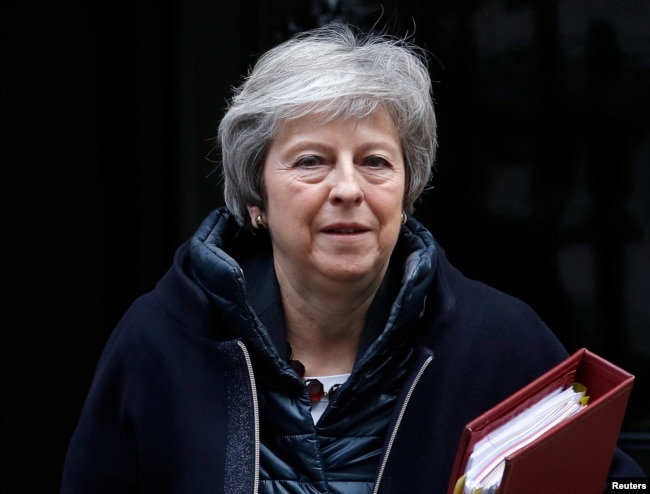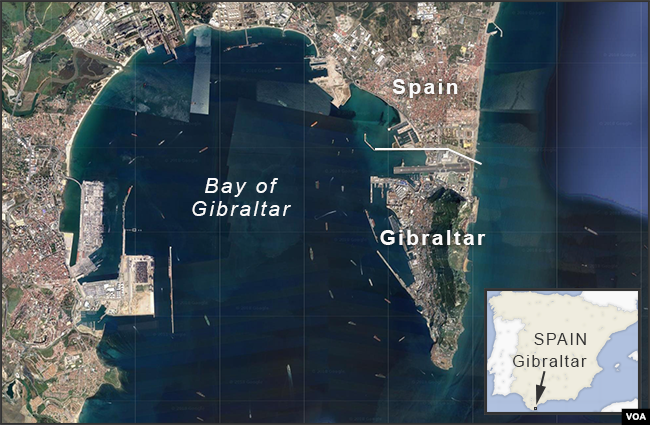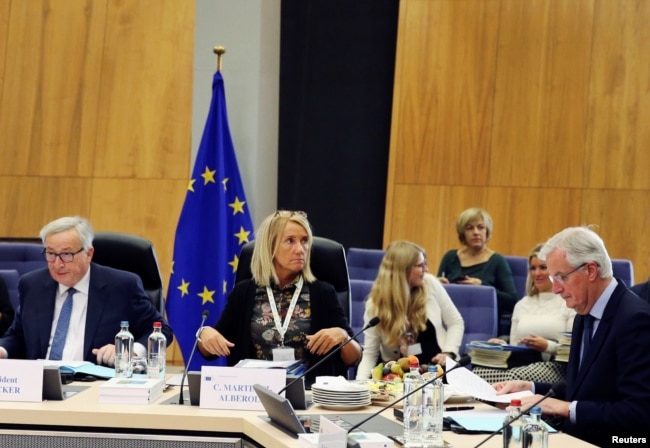British Prime Minister Theresa May appears to have held off a bid to oust her by rebels in her Conservative party who oppose a Brexit deal she is finalizing with the European Union. But her exit plan faces further threats as a group of EU nations demand further concessions from Britain, reports VOA News.
Spain is threatening to sink the Brexit deal over the status of Gibraltar, the headland on Spain’s south coast dominated by a high limestone ridge known as the Rock, which was ceded to the British in 1713.
As May headed Wednesday to Brussels for a meeting with Jean-Claude Juncker, the European Commission’s president, Madrid warned it would block the Brexit withdrawal agreement unless issues over Gibraltar’s future are clarified.
Spain wants the draft Brexit deal to make clear future talks about Gibraltar’s status would be in “separate negotiations” between London and Madrid and not part of a deal between Britain and the European Union. Spain fears the Brexit deal will legally confirm Gibraltar is part of Britain.
Spanish Prime Minister Pedro Sanchez says neither the 585-page draft divorce deal nor the accompanying political declaration about a possible future free trade agreement makes clear Gibraltar’s future is to be decided bilaterally.
“It should be negotiated between Spain and the UK. As it stands, the [Spanish] government will vote against the Brexit agreement,” he said.
The subject of Gibraltar has long been an emotional issue for both countries. Spain has claimed sovereignty over Gibraltar. Last year, former British Conservative leader Michael Howard suggested a dispute over the headland could provoke a war between Britain and Spain.
The veto threat has prompted outrage in London with accusations the Spanish government is trying to blackmail Britain. As far as the British are concerned, Spain’s foreign minister, Josep Borrell, has gone out of his way to stoke Scottish nationalism. He announced Tuesday that Madrid is reversing its traditional opposition to Scotland being readmitted to the EU, if in the future it should declare independence.
By dropping its opposition, Spain handed a propaganda coup to Scottish nationalists. It was quickly seized by their leader, Scotland’s First Minister Nicola Sturgeon, who is eager to lead Scotland out of Britain. She said it “demolished” the “scare story” British Conservatives push that if Scotland should declare independence, it would never be allowed to join the EU.
EU officials say they believe the Gibraltar issue can be solved before EU leaders sign the withdrawal agreement at a summit on Sunday. The deal would see Britain remaining in the EU customs union, which addresses imports and exports, for an indefinite period while a free trade deal is negotiated over the next few years.
Few observers believe the deal will win the approval of the British parliament next month when lawmakers are scheduled to vote on it formally, as all opposition parties have formally come out against it.
May is banking on securing a House of Commons majority for her deal by daring lawmakers across the political spectrum to let a “no-deal Brexit” go ahead. Crashing out of the bloc without a deal would likely trigger a recession, leaving behind bankrupt businesses and ruined livelihoods, say analysts.
Fishing rights
Aside from Spain, the agreement has been criticized by France, the Netherlands and Portugal. The three countries want fishing rights in British waters to be included, if not in the divorce deal, then at least in the political declaration setting the parameters for a possible future free trade deal.
Several EU governments are also dissatisfied because they believe the deal gives Britain a competitive advantage by not tying it closely enough to EU regulations, workers’ rights, and environmental standards, potentially lowering the production costs of British goods. If they manage to ensure there will be no competitive advantage, it will cause May further difficulties in selling the withdrawal agreement in the British parliament.
May leads a minority government and relies on the votes of a dozen Northern Ireland lawmakers, who deeply oppose the divorce deal as well. To demonstrate their power, twice this week they have withheld their support in important budget votes.



